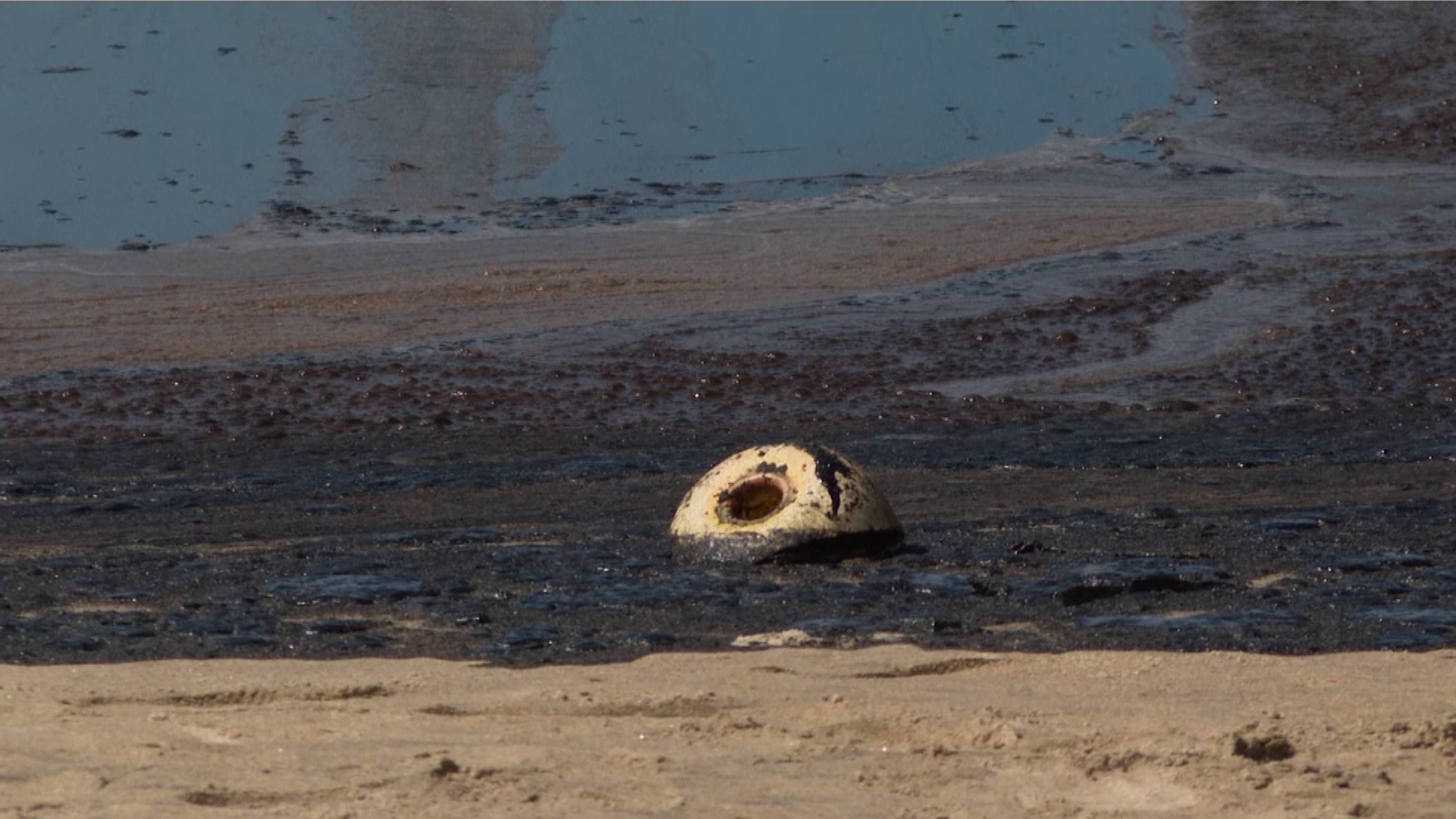01:05

A massive oil spill in Southern California, the United States this weekend has contaminated the coast between Huntington Beach and Newport Beach, covering both the beaches and wildlife in thick crude tar.
An estimated 3,000 barrels of heavy crude leaked into the waters off Orange County starting late Friday or early Saturday, according to local officials.
"…this oil spill constitutes one of the most devastating situations that our community has dealt with in decades," said Huntington Beach Mayor Kim Carr, calling the spill an "environmental catastrophe" and a "potential ecological disaster."
It came from a broken pipeline connected to an offshore oil platform known as Elly, which is about eight kilometers off the coast. The platform belongs to Houston's Amplify Energy Co., one of the largest oil producers in Southern California.
The oil spill reached the shores of Huntington Beach, a popular destination about 48 kilometers south of downtown Los Angeles, late Saturday after the pipeline burst. Officials say more oil will wash ashore this week.
Photos and videos from the coastline showed pancake-sized clusters of thick black oil lining the shores. Residents were also pictured rescuing birds covered in black sludge. Orange County Supervisor Katrina Foley said Sunday morning dead birds and fish have already washed ashore.
The pipeline and operations at three off-shore platforms owned by the company were shut down Saturday night, CEO Martyn Willsher said.
He said the company is still examining how this happened and whether it was indeed a leak. Inspections are done every other year, he said, adding the facilities were built in the 1970s and 1980s and that Amplify Energy Co. has owned and maintained the pipeline for about nine years.
"We are investigating the source and potential cause of this incident. Like I said we will continue to work with unified command to ensure that this recovery effort is concluded as quickly as possible," he said.
The United States Coast Guard (USCG) said in a statement that a unified command, consisting of Beta Offshore, the Coast Guard and Spill Prevention and Response from California Department of Fish and Wildlife, had been established to respond to the incident.
"Members of the public are asked to avoid any oiled areas. Trained spill response contractors are working to clean up oil. Public volunteers are not needed and could hinder response efforts. We request that members of the public stay away from the area," the statement said, adding that the cause of the spill, volume and type of oil are under investigation.
The oil slick was "reported to be approximately 13 square miles (33.7 square kilometers) in size, 3 miles (about 4.82 kilometers) off Newport Beach," the USCG said in an earlier Twitter post.
Local authorities urged people to avoid the beach areas around Huntington Beach and Newport Beach, saying "the spill has significantly affected Huntington Beach, with substantial ecological impacts occurring at the beach and at the Huntington Beach Wetlands."
By Sunday morning, "we've started to find dead birds & fish washing up on the shore," Foley tweeted.
Debbie McGuire, executive director of the Wetlands and Wildlife Care Center in Huntington Beach, was quoted by the local newspaper Orange County Register that staff in the center had prepared masks, goggles and IV fluids to stabilize the animals injured by the pollution.
McGuire said the first batch of wounded birds were sent to the center Sunday noon, including three pelicans, a ruddy duck and a surf scoter.
The oil spill also prompted the cancellation of the final day of the Great Pacific Airshow. The fifth annual air show began Friday morning at the Huntington Beach Pier and drew about 1.5 million visitors on Saturday. The event was scheduled to run through Sunday afternoon.
The last major oil spill hit the Southern California area 30 years ago. In 1990, the American Trader oil tanker spilled 1.9 million liters of crude, killing fish and approximately 3,400 birds and polluting popular beaches along the Orange County coast.
California has been taking a tough stand to protect its coast from the offshore oil and gas development since 1994 when the state legislature passed the California Coastal Sanctuary Act. It prohibits the state from entering into any new leases within state tidelands.
In 2017, the California Senate passed a resolution opposing new oil or gas drilling in federal waters located offshore California.
In 2019, when the Donald Trump administration planned to lease sales along the country's coast and vastly expand offshore oil drilling from coast to coast, the Golden State passed a law prohibiting new leases for new construction of oil and gas-related infrastructure, such as pipelines, within state waters if the federal government authorizes any new offshore oil leases.
(With input from agencies)
Check out The China Report, our new weekly newsletter. Subscribe here!

